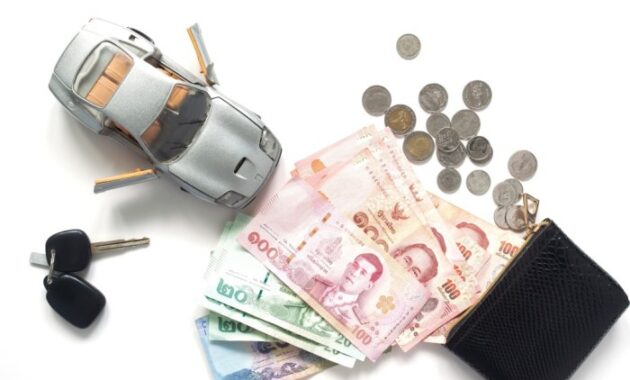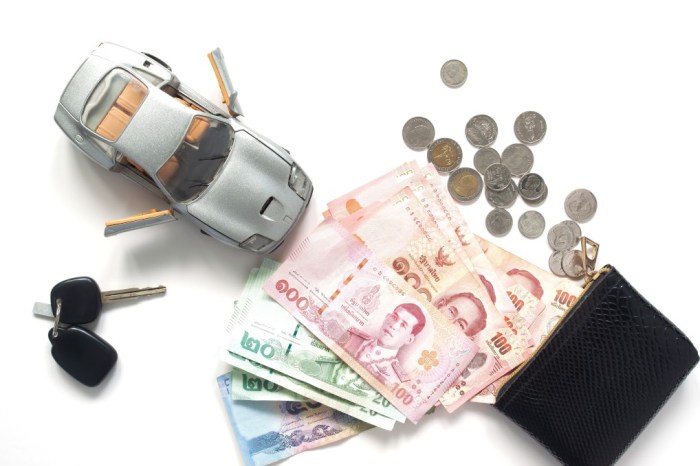
Can I insure a car not registered in my name? It’s a question that often arises when you’re looking to buy a car, especially if it’s a classic car or one that needs restoration. While you might think it’s impossible to insure a car that’s not in your name, there are actually a few situations where it’s possible. Understanding the specific requirements and conditions associated with these situations can help you navigate the process of securing insurance for an unregistered vehicle.
The key to insuring an unregistered car lies in being transparent with your insurance provider about the vehicle’s status. This includes explaining why the car isn’t registered and providing any relevant documentation, such as temporary registration papers or proof of ownership. Be prepared to answer questions about the car’s intended use and how it will be stored.
Understanding Car Insurance Requirements
Car insurance is a legal requirement in most countries, designed to protect drivers, passengers, and other road users in case of accidents. Understanding the requirements for car insurance is crucial to ensure you are legally compliant and financially protected.
Legal Implications of Driving an Unregistered Vehicle
Driving an unregistered vehicle is illegal in most jurisdictions. This means that the vehicle has not been officially recognized by the relevant authorities and may not meet safety standards. The legal consequences of driving an unregistered vehicle can be severe, including fines, impounding of the vehicle, and even suspension of your driving license.
Potential Consequences of Driving Without Proper Insurance
Driving without proper car insurance can lead to significant financial and legal repercussions.
- In the event of an accident, you may be held personally liable for all damages and injuries, even if you are not at fault. This could result in substantial financial losses, including medical bills, repair costs, and legal fees.
- You could face fines and penalties, which can vary depending on the jurisdiction. In some cases, these penalties can be quite substantial.
- Your driving license could be suspended or revoked, making it impossible for you to drive legally. This could have a significant impact on your daily life and ability to commute or travel.
- You may be required to pay higher insurance premiums in the future, as insurance companies view drivers without a history of insurance as higher risk.
Circumstances Where Insuring an Unregistered Car Might Be Possible

While it’s generally required to register a car before you can insure it, there are certain circumstances where you might be able to get insurance for an unregistered vehicle. These situations typically involve temporary or specific use cases.
Temporary Registration
In some cases, you might be able to obtain temporary registration for a vehicle, allowing you to insure it for a limited period. This is often necessary when you are in the process of registering a newly purchased vehicle or when you need to transport a vehicle for a specific purpose.
Temporary registration usually involves obtaining a temporary registration permit or certificate from the relevant authorities. The duration of the temporary registration period can vary depending on the jurisdiction and the reason for the temporary registration. For example, in some states, you might be able to obtain a 30-day temporary registration for a newly purchased vehicle while you complete the permanent registration process.
The requirements for obtaining temporary registration can vary by state. You will typically need to provide proof of ownership, proof of insurance, and possibly a valid driver’s license. It’s important to note that even with temporary registration, you might need to meet specific requirements for the insurance policy.
Classic Car Restoration, Can i insure a car not registered in my name
Insuring a classic car during restoration can be challenging as it might not be roadworthy or registered. In these cases, you might be able to obtain specialized insurance policies designed for classic cars under restoration.
These policies often cover damage to the vehicle during the restoration process, even if it’s not roadworthy or registered.
These policies typically require providing detailed information about the car, including its make, model, year, and any modifications being made. You might also need to provide proof of ownership and possibly a detailed restoration plan.
The coverage provided by these policies can vary, but they generally include protection against fire, theft, and vandalism. They might also cover damage caused by accidents during transportation or while the car is being worked on.
Vehicle Storage
If you’re storing a vehicle that is not registered, you might be able to obtain storage insurance. This type of insurance typically covers damage to the vehicle while it’s in storage, even if it’s not registered or roadworthy.
Storage insurance policies can provide coverage against risks such as fire, theft, vandalism, and natural disasters. They might also cover damage caused by accidents while the vehicle is being moved within the storage facility.
Vehicle Transportation
When transporting a vehicle that’s not registered, you might need to obtain transportation insurance. This type of insurance covers damage to the vehicle during transportation, even if it’s not registered or roadworthy.
Transportation insurance policies are typically offered by companies that specialize in vehicle transportation. They often require you to provide information about the vehicle being transported, the destination, and the mode of transportation.
The coverage provided by these policies can vary, but they generally include protection against damage caused by accidents, fire, theft, and vandalism. They might also cover delays or cancellations due to unforeseen circumstances.
Other Situations
In addition to the situations mentioned above, there might be other circumstances where you can insure an unregistered car. For example, you might be able to obtain insurance for a vehicle that is being used for research or testing purposes.
It’s important to note that the availability and terms of insurance for unregistered cars can vary depending on the insurer, the state, and the specific circumstances. It’s always advisable to contact multiple insurers and compare their policies before making a decision.
Exploring Insurance Options for Unregistered Cars

While it’s generally recommended to register your car before obtaining insurance, there are situations where you might need coverage for an unregistered vehicle. This could be due to ongoing repairs, restoration, or other temporary reasons. Fortunately, there are several insurance options available for unregistered cars.
Types of Insurance Policies for Unregistered Cars
Understanding the various insurance policies designed for unregistered vehicles is crucial. These policies offer different levels of coverage and are tailored to specific needs.
- Temporary Coverage: This type of insurance provides short-term coverage for a specific period, typically ranging from a few days to a few months. It’s ideal for situations where you need coverage for a short trip, vehicle transport, or while waiting for registration.
- Collector Car Insurance: This specialized insurance is designed for classic or antique cars, which are often not driven regularly and may have a higher value than standard vehicles. Collector car insurance provides comprehensive coverage, including agreed value coverage, which means the insurer agrees to pay a predetermined amount for the car in case of a total loss.
- Garage Liability Insurance: This type of insurance provides coverage for liability risks associated with your garage or storage facility, including damage caused by your unregistered vehicle. It’s essential if you’re storing an unregistered car in a garage or workshop.
Comparison of Insurance Options
| Policy Type | Coverage | Benefits | Limitations |
|---|---|---|---|
| Temporary Coverage | Liability, Collision, Comprehensive | Short-term coverage, affordable | Limited coverage period, may not cover all risks |
| Collector Car Insurance | Agreed Value Coverage, Liability, Collision, Comprehensive | Comprehensive coverage, high value protection | Higher premiums, may have specific usage restrictions |
| Garage Liability Insurance | Liability | Protects against liability claims | Does not cover damage to your vehicle |
Final Conclusion

Ultimately, whether or not you can insure a car not registered in your name depends on your individual circumstances and the specific insurance provider you choose. It’s important to communicate openly and honestly with your insurer to ensure you have the right coverage for your needs. By understanding the requirements and seeking professional guidance, you can navigate the process of insuring an unregistered vehicle with confidence.
Popular Questions: Can I Insure A Car Not Registered In My Name
What are the legal implications of driving an unregistered car?
Driving an unregistered car is illegal in most jurisdictions. You could face fines, penalties, and even the suspension of your driving privileges.
What are the potential consequences of driving without proper insurance?
Driving without insurance can lead to serious financial consequences, including hefty fines, legal fees, and the potential loss of your driving license. In the event of an accident, you could be held personally liable for all damages and injuries.
What are the most common types of insurance policies for unregistered cars?
Common types of insurance policies for unregistered cars include temporary coverage, collector car insurance, and classic car insurance. Each policy has its own specific terms and conditions, so it’s important to carefully review them before making a decision.
What are some tips for effectively communicating with insurance providers about an unregistered car?
When discussing an unregistered car with your insurer, be clear and concise about the vehicle’s status. Provide all relevant documentation, such as temporary registration papers or proof of ownership. Be honest and transparent about your intended use of the car and how it will be stored.